
Sierra Leone, officially the Republic of Sierra Leone, is a country on the southwest coast of West Africa. It is bordered to the southeast by Liberia and by Guinea to the north. Its land area is 71,740 km2 (27,699 sq mi). It has a tropical climate and environments ranging from savannas to rainforests. As of the 2023 census, Sierra Leone has a population of 8,908,040. Freetown is both its capital and its largest city. The country is divided into five administrative regions, which are further subdivided into 16 districts.
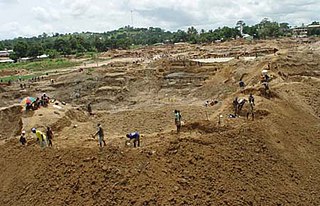
The economy of Sierra Leone is $7.41 billion by gross domestic product as of 2024. Since the end of the Sierra Leone Civil War in 2002, the economy is gradually recovering with a gross domestic product growth rate between 4 and 7%. In 2008 it in PPP ranked between 147th by World Bank, and 153rd by CIA, largest in the world.

Freetown is the capital and largest city of Sierra Leone. It is a major port city on the Atlantic Ocean and is located in the Western Area of the country. Freetown is Sierra Leone's major urban, economic, financial, cultural, educational and political centre, as it is the seat of the Government of Sierra Leone. The population of Freetown was 1,347,559 as of the 2024 census.
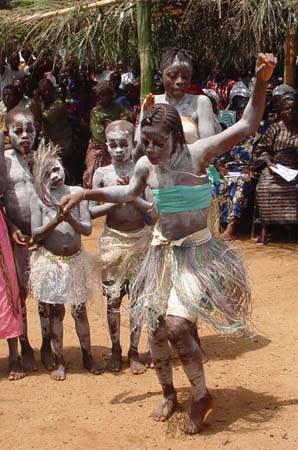
Sierra Leone's music is a mixture of native, French, British, West Indian and Creole musical genres.
Philip Andrew Irons was an American professional surfer. Irons began surfing with his brother Bruce on the shallow and dangerous waves of Kauai, Hawaii, before being spotted by a local surfboard brand and flown to North Shore, Oahu, Hawaii, to compete and develop his skill.
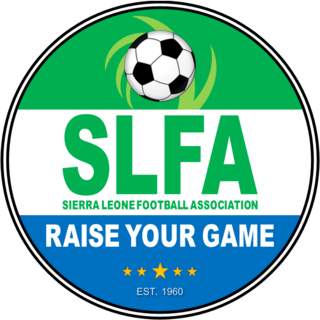
The Sierra Leone national football team represents Sierra Leone in association football and is governed by the Sierra Leone Football Association. It has qualified for Africa Cup of Nations three times.

Mami Wata, Mammy Water, or similar is a mermaid, water spirit, and/or goddess in the folklore of parts of Western Africa, Eastern Africa, and Southern Africa. Historically, scholars trace her origins to early encounters between Europeans and West Africans in the 15th century, where Mami Wata developed from depictions of European mermaids. Mami Wata subsequently joined native pantheons of deities and spirits in parts of Africa.

Lake surfing is surfing on any lake with sufficient surface area for wind to produce waves. As with ocean surfing, ideal wave conditions are when the wind switches offshore. However, when this occurs over a lake the waves generated by previous onshore wind subside relatively quickly. This means lake surfers have a shorter window of opportunity to surf ideal waves. Lake surfers are often out during and experiencing the same storm that creates the waves whereas ocean surfers are more often surfing on swell produced by storms hundreds of miles away and that may have taken days to reach shore. In addition to making it more difficult to manage surfboards, high winds can make the face of a wave and water surface rough. Increased wave frequency due to shorter fetch results in less rest between waves and sets of waves. This can make it necessary to paddle out through waves because there may not be a long enough pause between sets to paddle out between them.

John "John John" Alexander Florence is an American professional surfer. He is considered one of the most dominant pipe surfers of his era and won back-to-back world titles on the 2016 World Surf League and 2017 World Surf League Men's Championship Tour. He is the first Hawaii-born surfer to win back-to-back world titles since the late Andy Irons. Florence qualified to represent the United States at the 2020 Summer Olympics in surfing's debut, as well as qualified for the Paris Olympic Games.
Available healthcare and health status in Sierra Leone is rated very poorly. Globally, infant and maternal mortality rates remain among the highest. The major causes of illness within the country are preventable with modern technology and medical advances. Most deaths within the country are attributed to nutritional deficiencies, lack of access to clean water, pneumonia, diarrheal diseases, anemia, malaria, tuberculosis and HIV/AIDS.
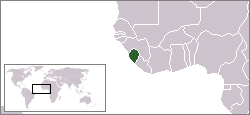
Lesbian, gay, bisexual, and transgender (LGBT) people in Sierra Leone face legal challenges not experienced by non-LGBTQ residents. Male same-sex sexual activity is illegal in Sierra Leone and carries a possible penalty of life imprisonment, although this law is seldom enforced.

Greg Long is an American surfer from San Clemente, California. He has won the Quiksilver Big Wave Invitational, in memory of Eddie Aikau at Waimea Bay, the Red Bull Titans of Mavericks event held at Mavericks in Northern California, and the Red Bull Big Wave Africa event held at Dungeons in Hout Bay, South Africa. Additionally, he is the most decorated surfer in the Billabong XXL Global Big Wave Awards. He is widely regarded as one of the best big wave surfers in the world.
Sierra Leonean Americans are an ethnic group of Americans of full or partial Sierra Leonean ancestry. This includes Sierra Leone Creoles whose ancestors were African American Black Loyalists freed after fighting on the side of the British during the American Revolutionary War. Some African Americans trace their roots to indigenous enslaved Sierra Leoneans exported to the United States between the 18th and early 19th century. In particular, the Gullah people of partial Sierra Leonean ancestry, fled their owners and settled in parts of South Carolina, Georgia, and the Sea Islands, where they still retain their cultural heritage. The first wave of Sierra Leoneans to the United States, after the slavery period, was after the Sierra Leone Civil War in the 1990s and early 2000s. According to the American Community Survey, there are 34,161 Sierra Leonean immigrants living in the United States.

Visitors to Sierra Leone must obtain an e-Visa unless they are citizens of one of the visa-exempt countries or citizens who may obtain a visa on arrival.
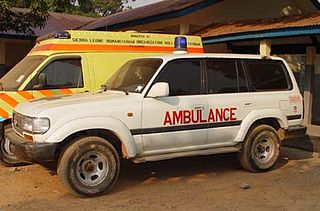
Healthcare in Sierra Leone is generally charged for and is provided by a mixture of government, private and non-governmental organizations (NGOs). There are over 100 NGOs operating in the health care sector in Sierra Leone. The Ministry of Health and Sanitation is responsible for organizing health care and after the end of the civil war the ministry changed to a decentralized structure of health provision to try to increase its coverage.
Polygamy is prohibited under Sierra Leone’s penal code. Polygamy is authorized in customary marriages, where a man can take as many wives as he wishes.

The Sierra Leone Creole people are an ethnic group of Sierra Leone. The Sierra Leone Creole people are descendants of freed African-American, Afro-Caribbean, and Liberated African slaves who settled in the Western Area of Sierra Leone between 1787 and about 1885. The colony was established by the British, supported by abolitionists, under the Sierra Leone Company as a place for freedmen. The settlers called their new settlement Freetown. Today, the Sierra Leone Creoles are 1.2 percent of the population of Sierra Leone.
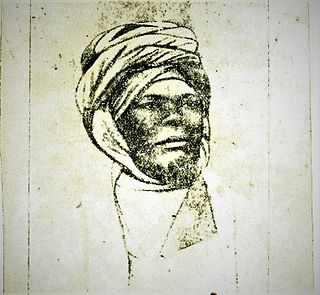
The Oku people or the Aku Marabout or Aku Mohammedans are an ethnic group in Sierra Leone and the Gambia, primarily the descendants of marabout, liberated Yoruba people who were released from slave ships and resettled in Sierra Leone as Liberated Africans or came as settlers in the mid-19th century.

India–Sierra Leone relations refers to the international relations that exist between India and Sierra Leone. India maintains a High Commission in Freetown. Sierra Leone does not have a resident diplomatic mission in India. The Sierra Leonean embassy in Abu Dhabi, United Arab Emirates is accredited to India.
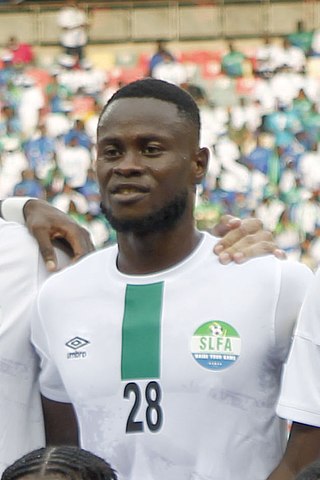
Musa Noah Kamara is a Sierra Leonean footballer who plays as a striker for Bo Rangers and the Sierra Leone national team.















